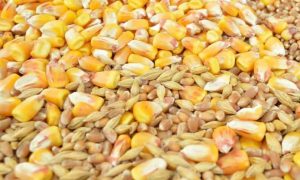India allows imports of corn, vegetable oils at concessional duty

India has approved limited imports of corn, crude sunflower oil, refined rapeseed oil, and milk powder under the tariff-rate quota (TRQ) to tackle food inflation, allowing lower or no duty on imports. The approved quotas include 150,000 metric tons of sunflower oil, 500,000 tons of corn, 10,000 tons of milk powder, and 150,000 tons of refined rapeseed oil. Imports are managed by cooperatives and state-run entities like NDDB, NCDF, and NAFED, ensuring no GMOs are involved.
India on Wednesday allowed limited imports of corn, crude sunflower oil, refined rapeseed oil, and milk powder under the tariff-rate quota (TRQ), where importers pay nil or lower duty, as New Delhi tries to bring down food inflation.
India is the world’s biggest importer of vegetable oils such as palm oil, soyoil and sunflower oil and the top producer of milk.
India has allowed imports of 150,000 metric tons of sunflower oil or safflower oil, 500,000 tons of corn, 10,000 tons of milk powder and 150,000 tons of refined rapeseed oil, the government said.
Food inflation, driven by supply-side factors like adverse weather affecting crops, has remained at around 8% year-on-year since November 2023, preventing it from cutting interest rates.
The government has short-listed cooperatives and state-run companies, such as the National Dairy Development Board (NDDB), the National Cooperative Dairy Federation (NCDF), and the National Agricultural Cooperative Marketing Federation of India Ltd (NAFED), for the imports.
“There wasn’t any need to allow imports of sunflower and rapeseed oil at concessional duty,” said a Mumbai-based dealer with a global trade house.
“Oilseed prices are already under pressure due to cheaper imports, which still attract duty. Now, duty-free imports will exert additional pressure.”
India fulfils nearly two-thirds of its vegetable oil requirements through imports of palm oil, mainly from Indonesia and Malaysia, as well as sunflower oil and soybean oil from Russia, Ukraine, Argentina, and Brazil.
India is the world’s biggest producer of milk, but recently, leading dairies raised milk and milk product prices due to strong demand amid limited supplies.
Domestic corn prices were rising due to strong demand from the poultry and ethanol industry.
India, which does not allow cultivation of any genetically modified food crops, has rules in place to ensure that imports contain no trace of genetically modified organisms.















